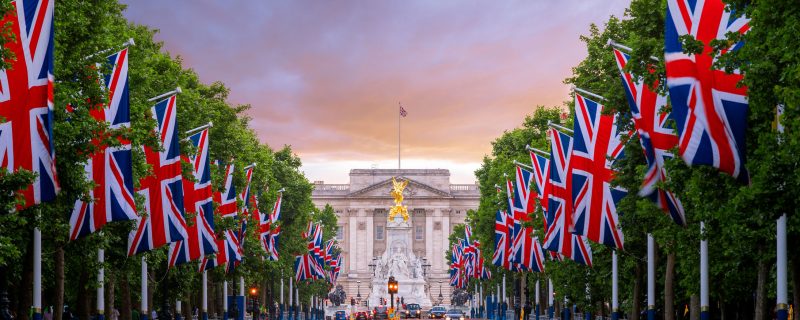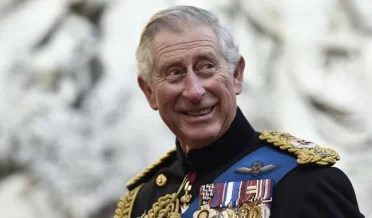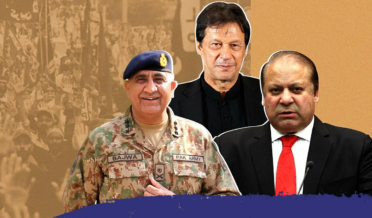Aims exclusive report
Although, British Empire was the most extensive Empire in human history. It was the world’s foremost power throughout the late 18th and 19th centuries and achieved its largest extent in the 20th century. During this time, the United Kingdom acquired nation-state ownership and direct rule over large areas of the world. Britain’s global power originated from the Industrial Revolution and because of its geography as a large maritime power off the coast of Western Europe. British political, economic, social and cultural influences dramatically shaped and created significant changes globally.
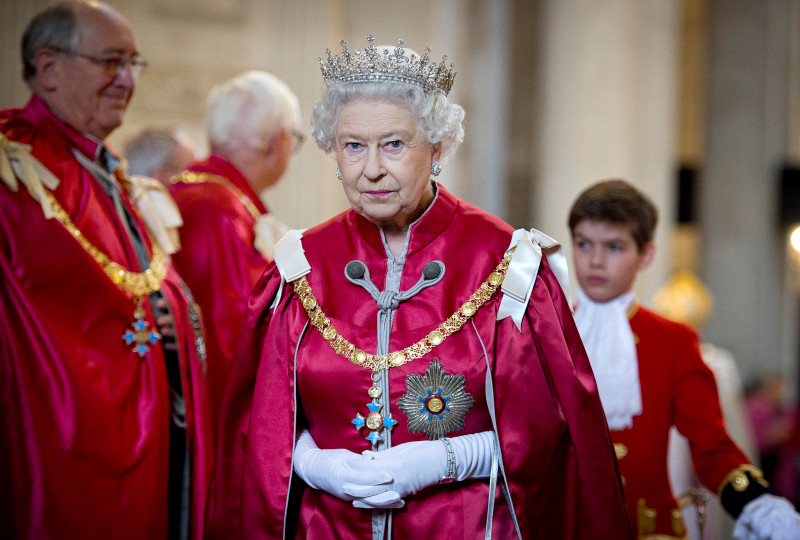
However as other nations industrialized and social and political changes took place in the Empire, the idea of colonization and imperialism fell out of favour. In addition, the consequences of fighting two world wars in the 20th century within a relatively short amount of time hastened the decline of the Empire. The movement for self-determination of Britain’s colonies started in the late 19th century and was well underway by the 1920s, seen for example through the emergence of the Indian National Congress in 1885 and the Balfour Declaration of 1926. Self-determination and movements for independence represented significant changes in political and social ideology. This culminated in a rapid wave of decolonization in the decades after World War II. It has also been argued that World War II saw the emergence of new powers such as the United States and the Soviet Union who were hostile to traditional imperialism and hastened its decline.
The Suez Crisis of 1956 is considered by some commentators to the beginning of the end of Britain’s period as a superpower, but other commentators have pointed to World War I, the Depression of 1920-21, the Partition of Ireland, the return of the pound sterling to the gold standard at its prewar parity in 1925, the loss of wealth from World War II, the end of Lend-Lease Aid from the United States in 1945, the postwar Age of Austerity, the Winter of 1946–47, the beginning of decolonization and the independence of India as other key points in Britain’s decline and loss of superpower status.
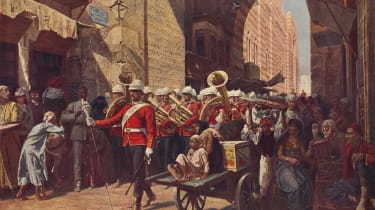
The Suez Crisis is regarded to be a political and diplomatic disaster for the United Kingdom, as it led to large-scale international condemnation, including extensive pressure from the United States and Soviet Union. This forced the British and the French to withdraw and cemented the increasingly-bipolar Cold War politics between the Soviet Union and United States. In the 1960s, the movement for decolonization reached its peak, with remaining imperial holdings achieving independence, accelerating the transition from the British Empire to the Commonwealth of Nations. The United Kingdom later experienced deindustrialization throughout the 1970s, coupled with high inflation and industrial unrest that unraveled the postwar consensus. This led to some to refer to the UK as the Sick Man of Europe. In 1976, the United Kingdom sought assistance from the International Monetary Fund which it had helped create, receiving funding of $3.9 billion, the largest-ever loan to be requested up until that point.
Many see this as symbolising Britain’s postwar decline. It is important to note however that other nations also experienced crippling inflation in the 1970s such as the United States, through the collapse of the Bretton Woods System in 1971-73.
The United Kingdom today retains extensive global soft power, including a formidable military. The United Kingdom has a permanent seat on the UN Security Council alongside only 4 other powers and is one of the nine nuclear powers. Its capital city, London, is regarded as one of the pre-eminent cities in the world, ranking first in the Global Power City Index by the Mori Foundation.
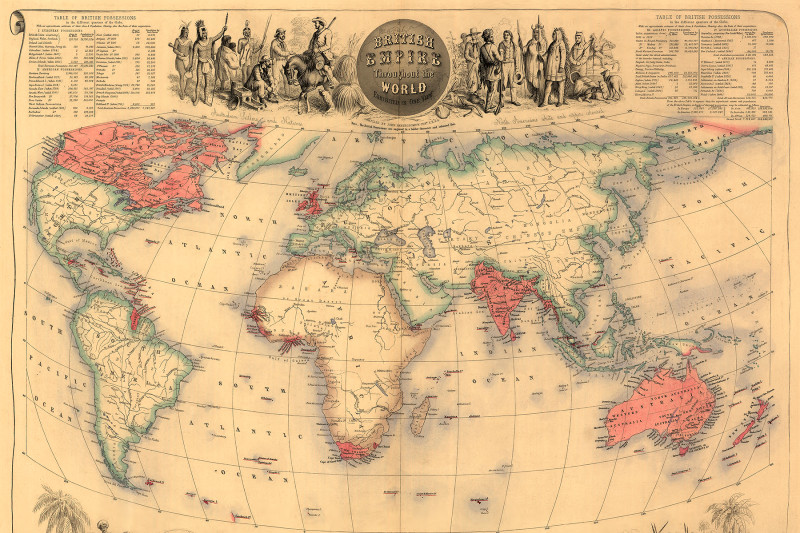
One of American political scientist, Joseph Nye defines “Soft Power” as a persuasive approach to international relations through political values, culture and foreign policy. Nations in the age of globalization are trying to magnify their global profile and nation branding has become necessary to stay on the top. Many countries today are using soft power in international relations as an instrument to reach their global aims. Soft power not only impacts the prosperity and influences the countries but also has implications for national security.
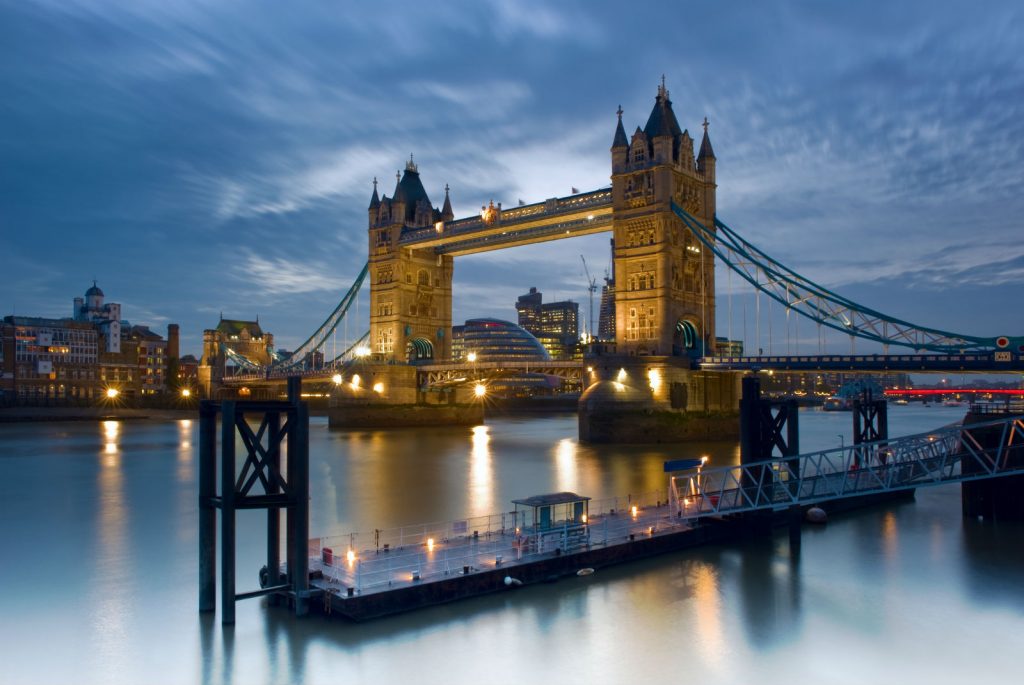
The “soft power superpower” of U.K has been well known globally. As a reserve of soft power with centuries of culture and chronicles, the nation has unquestionably performed strongly. Since the colonial era, soft power has connected Britain to the world through the English language that has continued to enhance its influence through literature, music, films, BBC and British council, maintaining trade and prosperity promotion, helping developing countries reach their potential, offering scholarships to foreign students, making U.K attractive to other countries and their citizens, driving global action through its memberships of international organizations like the UN, the Commonwealth, NATO and so on. For nearly a centenary the British Council has showcased the English language internationally and guided cultural performances, artworks carnivals and libraries across the world magnifying itself as a tangible soft power enlargement of the U.K foreign policy. The achievement of Britain’s mighty soft power massively extends to television such as Game of Thrones, Sherlock Holmes, Peaky Blinders, Shakespeare and Jane Austen series, Harry Potter and so on that has expanded its light to many corners of the earth. The U.K tourism further adds to maintain the country’s shine due to the affluence of medieval architecture; theatre-shows, galleries, museums and the 2012 Olympics showcased Britain in a ‘golden way’ to the world. It is observed that nations with the largest economies are seen to be attractive for doing business and the stature of the U.K for openness, equality, fairness and stability has shown the overseas public the credence to choose the country over other destinations. Britain is a nucleus of ideas and innovation with the most sought-after financial market globally.
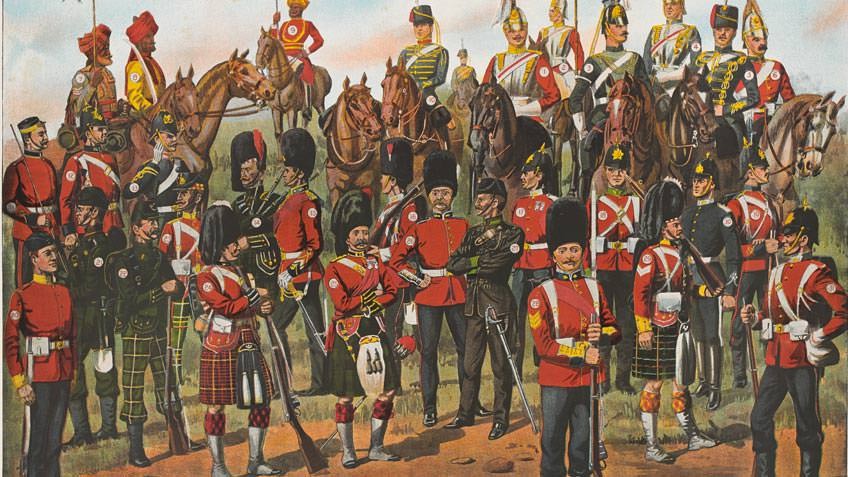
Nevertheless, the country that occupied the top spot in the 2018 Soft power-30 report has slid to the 2nd spot in the 2019 report of Soft power-30. Likewise, the global soft power index compiled by Brand Finance ranked the UK third with a score of 61.8 following the USA (67.1) and Germany (61.9). The soft power of the country had earlier fallen victim to Brexit and the COVID pandemic has further made the situation more wretched for the country. U.K has likewise shown mediocre achievements in the government and enterprise sub-indices and has slumped in the World Economic Forum (WEF) Competitiveness Index 2019, which witnessed a decline in overall Foreign Direct Investment (FDI). The country has been facing many impediments and is working hard to do well in soft power that has been of critical importance to Britain in the areas of security, overseas education, tourism, culture and business.
In today’s world, as nations are competing, it is important for the U.K to embrace an ambitious strategy and vision for soft power. It should also be conducive to drawing the global talent and market immediately following post-Brexit years and soon after recovering from COVID to magnify its soft power. Being known as the ‘cultural capital of the globe’, London symbolizes a tremendous soft power-saving grace for the U.K. London has usually maintained to be the most magnificent metropolis and one of the most immeasurable and reputable international mega-cities and is definitely U.K’s passageway to the rest of the world that can pick up the strings to act as an upholding shore. The U.K should strengthen its immediate position and re-access the global platform as a soft power country. Britain grasps that soft power is much better compared to hard power in maintaining relations with other nations to boost its image. The Brexit, COVID and other geo-political factors are an opportunity to enable the U.K to revamp its “Soft Power” magnetism.
Trade and foreign aid are also one of the most pristine and built means of international diplomacy and soft power that could likewise be a ‘trump card’ for mounting opportunities in the future for the country. The country’s soft power augmentation and human rights amelioration have conversed within its numerous NGOs which shows the need to align the U.K’s foreign policy and foreign aid goals. Foreign collaboration for Britain is latchkey to strengthening soft power by interlocking in commerce with the world. The British Council too has a vital purpose to engage in elevating its cultural excellence and needs to be revamped to stay connected with the global public and improve online learning and distance education post-pandemic. The British Government needs to nurture more to increase scholarships and research funding in its universities. While the U.K local administration can continue to perform an exceptionally significant role in Para-diplomacy, the British Royals can further help in stimulating the nation’s soft power. The government of the U.K has recently begun revamping its soft power potential to stay at the top by providing a package of £1.57 billion to various heritage and cultural centers to come out of the COVID-19 pandemic that will help these centres in reaching out to emergency loans and grants. The U.K has also demonstrated its true soft power capacity, by being cordial and generous to welcome Hong Kong citizens after China introduced the new security law in Hong Kong.
Though these are some of the initial steps taken by the U.K, the country has a long way to go and will have to work strenuously to create a great impression and good vibes globally and mainly in Europe. The country must discover innovative ideas for enhancing its soft power in the post-COVID world order.

